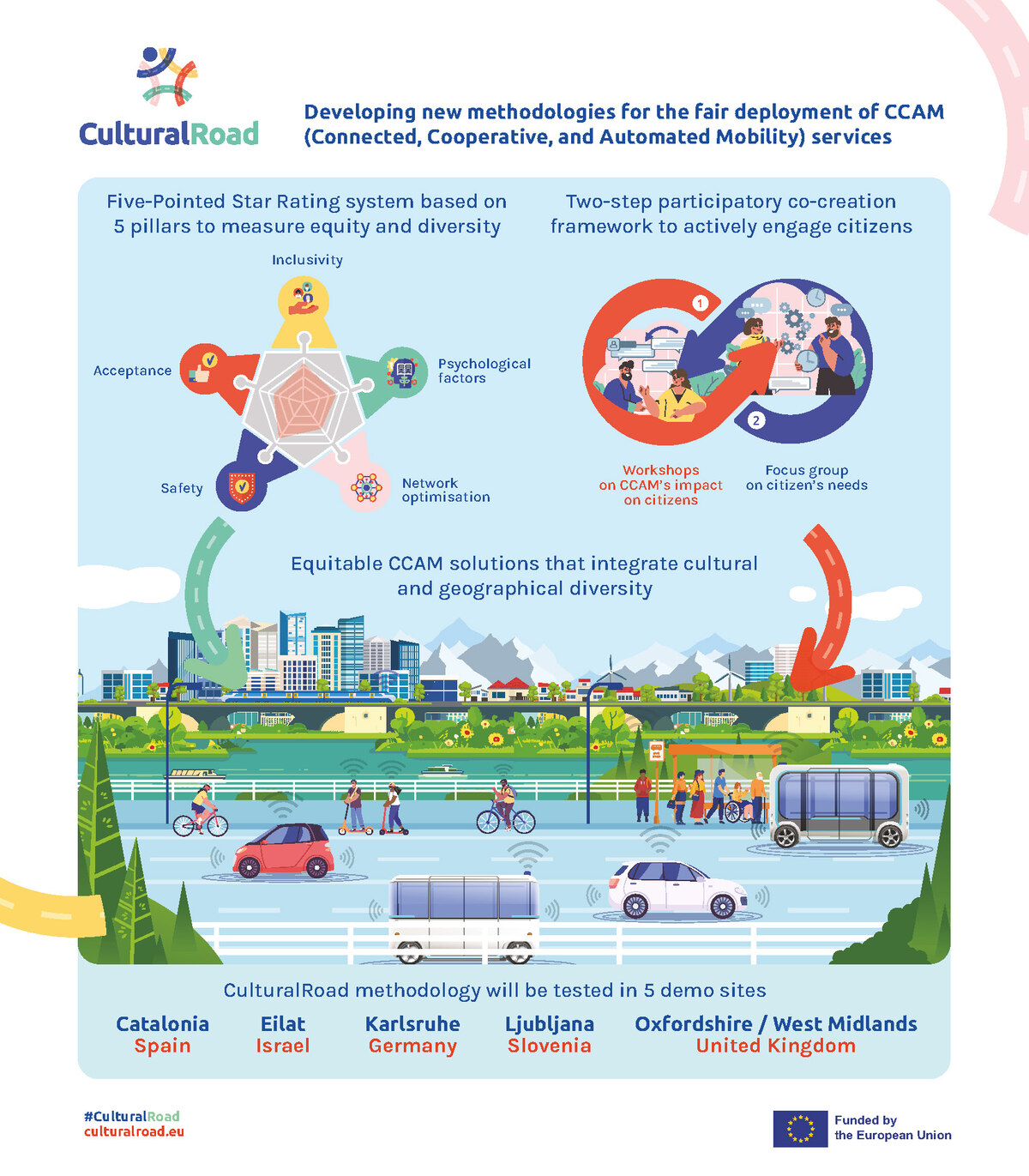CulturalRoad: Cultural, regional, and societal factors to overcome barriers to cooperative, connected, and automated mobility deployment
- Project team:
Lang, Daniel (Project leader); Annika Weiser, Veronika Stein
- Funding:
European Union, Horizon 2020
- Start date:
2024
- End date:
2027
- Research group:
Project description
Recognizing the need to address the growing demand for transport while reducing emissions from the sector, Cooperative, Connected, and Automated Mobility (CCAM) is a key area for achieving the United Nations Sustainable Development Goals (SDGs). In order to realize the full potential of CCAM solutions, the CulturalRoad project aims to foster the equitable deployment of such services by employing an innovative participatory approach. This approach involves all stakeholders and local communities in the development of CCAM implementation plans, taking into account diversity in terms of cultural, geographical, and exogenous aspects.
For this purpose, the project will develop a unique Five-Pointed Star Rating System to evaluate CCAM equity in specific contexts, assessing safety, inclusivity, user acceptance, network readiness, and psychological factors. The CulturalRoad concept will then be tested in five demonstration sites. This will ensure that local needs are met, facilitate comparisons across cultures, and support the development of transferable CCAM deployment roadmaps.
Along with Barcelona (Spain), Eilat (Israel), Ljubljana (Slovenia) and the West Midlands and Oxfordshire regions (UK), Karlsruhe will be one of the demonstration sites that will address the question of how future forms of mobility such as autonomous shuttles could be used to meet the people’s specific needs and expectations. Virtual and augmented reality as settings that are “close to the real” will be used to easily implement, demonstrate, and facilitate future CCAM applications and ultimately bring them onto the road.
Therefore, ITAS works together with INIT, a Karlsruhe-based provider of IT solutions in the public transport sector, and the KIT research group Cooperative Autonomous Systems (CAS), which specializes in CCAM applications and has expertise in augmented and virtual reality simulations. ITAS will link the technological innovations of its partners with society. This happens through so-called transdisciplinary and real-world laboratory settings, which aim to test and shape new technologies together with the local population through various participatory formats and thus tailor them to their needs.
Contact
Karlsruhe Institute of Technology (KIT)
Institute for Technology Assessment and Systems Analysis (ITAS)
P.O. Box 3640
76021 Karlsruhe
Germany
Tel.: +49 721 608-22336
E-mail


